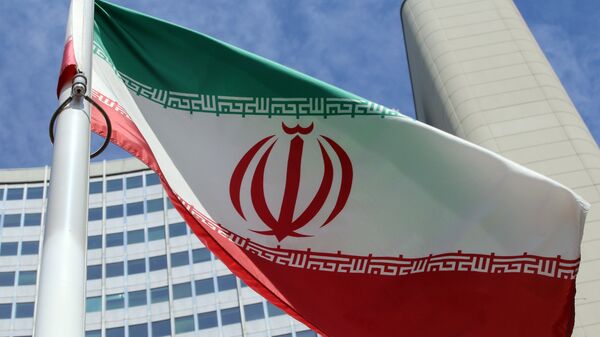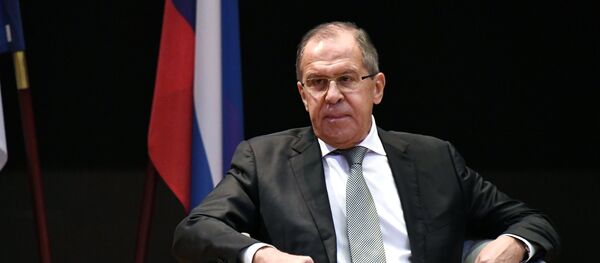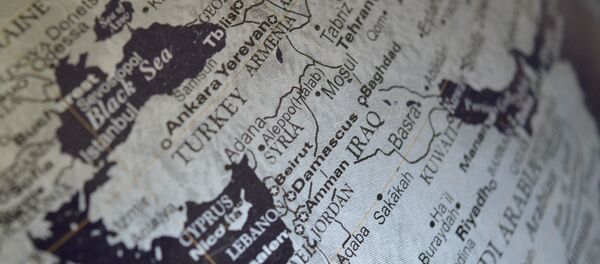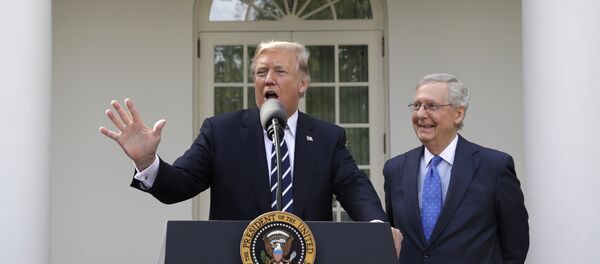PARIS (Sputnik) – On Friday, US President Donald Trump, who has repeatedly threatened to halt the Joint Comprehensive Plan of Action (JCPOA), commonly known as the Iranian nuclear deal, said his administration had decided not to certify that Iran was in compliance with the accord, which stipulates the gradual cancellation of the Western sanctions in exchange for Tehran abandoning its nuclear program.
Trump’s statements have provoked criticism from Tehran and the other parties to the 2016 deal — the European Union and P5+1 countries (China, France, Russia, the United Kingdom, the United States, plus Germany).
EU, US DISAGREEMENTS
Christian Lequesne, a professor with the Center of International Studies at the French Sciences Po university, pointed to the clear difference between the positions of the European Union and the United States on the JCPOA.
"It is Trump who wants to review the agreement, which was negotiated long and hard, and the Europeans are not on the same page with Trump here. They have a different view, they want to preserve the agreement how it was negotiated, and move toward lifting the sanctions. Here we have a clear difference. In Russia you often hear term ‘the West’ aimed to describe Europe and the United States at the same time, but here is an example of different positions Europe and the United States have," Lequesne told Sputnik.
According to the expert, there was unanimity in Europe on adhering to conditions of the Iranian nuclear deal.
"I think that, as far as big European states are concerned, there is unanimity, be it London, Paris or Berlin, — we agree that agreement with Iran is a good deal. I do not know the position of Warsaw or Budapest, but in any case big European states stick to this opinion," Lequesne said.
"[The EU parties to the deal] would also be anxious if Congress votes for the sanctions and the US leaves the deal, because there is no alternative to this agreement," Coville pointed out.
The expert, who specializes on Iran, noted that Trump did not "go to the bottom" in his declaration on the deal, because he left Congress to decide whether or not to impose new sanctions.
"I do not think [Trump] really meant to modify the agreement, there is a gap between his statements and reality, and it is not at all certain that the congress will review the sanctions. It still makes Europeans worry because they are committed to this agreement. So I think that what Europeans will do is go to the Congress and explain that one should not go back on this agreement, that it works well … The IAEA [International Atomic Energy Agency] reports also show that Tehran respects the deal. So Europeans will turn to the Congress to show to which extent they are committed to this agreement," Coville pointed out.
Coville agreed that the EU leaders believe that the JCPOA was a "good agreement, which needs to be respected," but simultaneously share Trump’s concern about Iran’s missile program and its role in the region.
"On the one hand, they think that one should not touch the agreement, and, on the other, they are not really far from Trump, they just do not say it in the same way, as far as Iranian missiles are concerned and Iran’s role as ‘stabilizer’ in the region. There are worries regarding its ballistic program and the role it plays in Syria," the expert pointed out.
From Iran’s side, there is no desire to renegotiate the deal too, Coville added, noting that during the two years of negotiations on the JCPOA, various concessions had been made by all sides of the accord.
"On the other hand, what Europeans and Americans could agree on is to ask Iran to renegotiate the question of missiles and its role in the region," Coville noted.
IRAN’S IMPORTANT ROLE IN MIDDLE EAST
Meanwhile, Coville ruled out the possibility of Iran engaging in negotiations on its ballistic missile program.
"As far as its regional role is concerned, Iran has to be involved in the resolution of the regional crisis, it needs to play a constructive role, the way to it has been paved with the Astana agreement with Turkey and Russia. And I think that Trump has to change his way to proceed if he wants new negotiations on other issues," the expert suggested.
"There are a number of conflicts which you cannot resolve without dialogue with Iran. I am talking about Syria, of course. It is clear that Iran supports the government of Bashar Assad. From this point of view, its position is convergent to that of Russia. If one day we would want a dialogue with Bashar Assad, engaging him in a process of diplomatic negotiations, the fact of having good relationship with Iran would be helpful," the expert explained.
Following Trump’s declaration, the European Union called on the US congressmen to preserve the Iranian nuclear deal, warning that the possibility of scrapping it could threaten international security and damage diplomatic efforts to defuse tension in North Korea by engaging in a dialogue with Pyongyang on its nuclear program.




